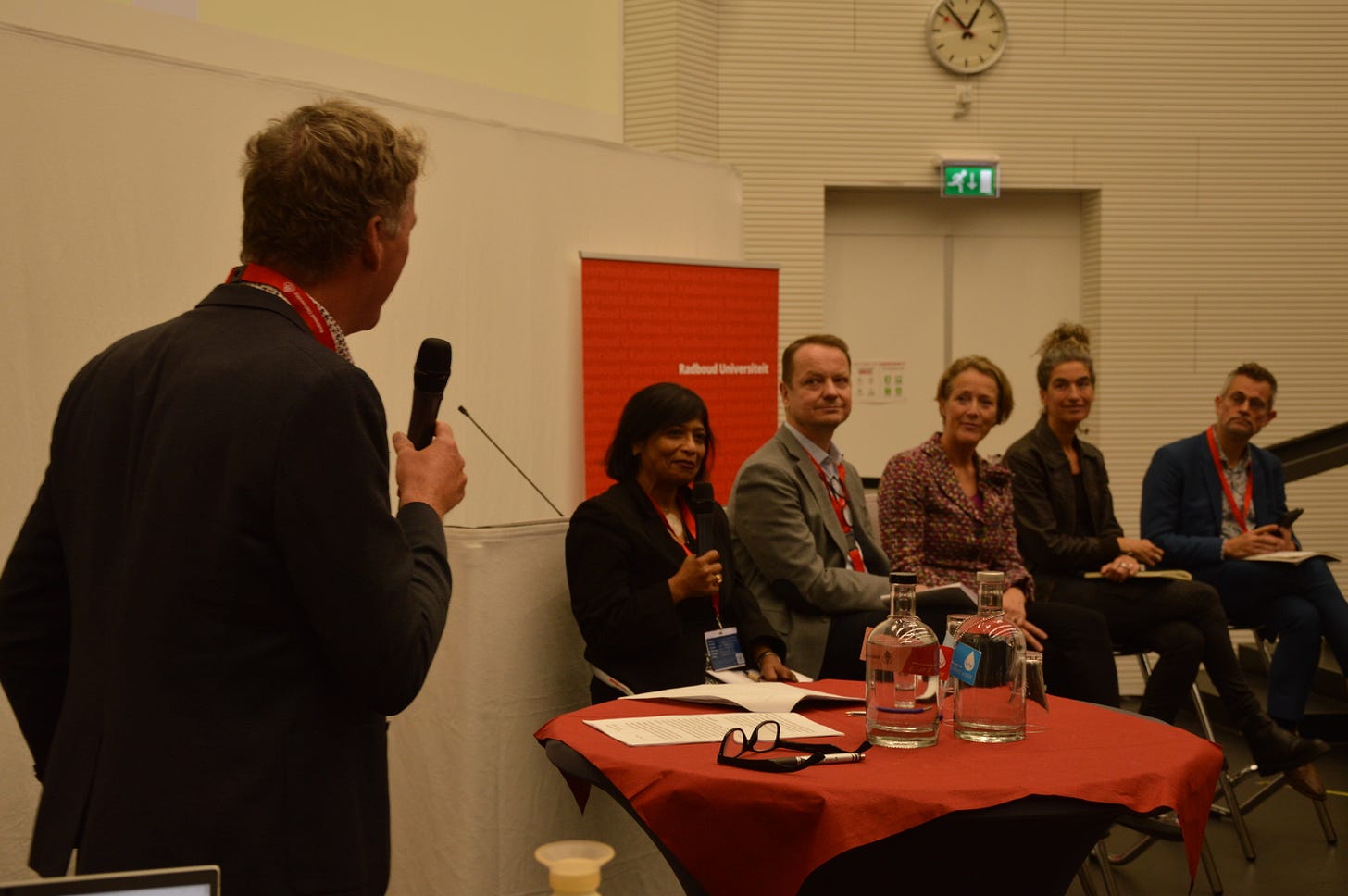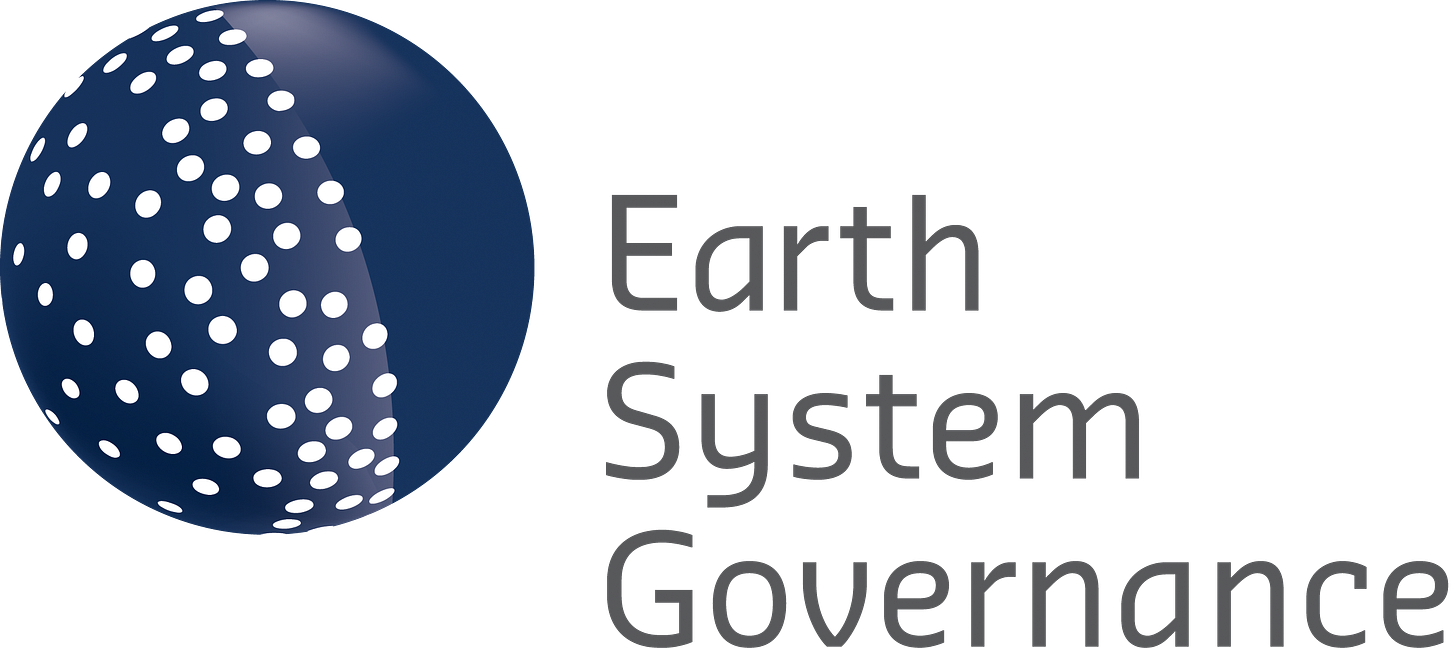The opportunities and pitfalls of value-oriented transformative governance for biodiversity (Earth System Governance Student Blog)
A synthesis reflection on what can we strengthen, challenge and learn from each other for research and governance of plural values.
Author Bio: Jil Laukamp, is a Behavioural Science Research Master student at the Radboud University.
At the 2023 Radboud Conference on Earth System Governance, I attended the fishbowl dialogue on the opportunities and pitfalls of value-oriented transformative governance for biodiversity chaired by Jeanne Nel from Wageningen University. I think the decreasing biodiversity is concerning, so I was very interested in how these scholars proposed to address this challenge.
I had no prior knowledge on the concepts the authors were describing, so I took the experience as a fresh look into the earth systems governance scholarship. The session was advertised as an innovative session with 5 experts, from a Horizon Europe project launched 2022-2023 to support research on ‘enabling transformative change’ in relation to biodiversity and climate change. During the session, participants would be engaged in core questions that the project had been wrestling with. The key question of the debate was
“how can we strengthen, challenge and learn from each other for research and governance of plural values?”
Beyond this question, the debate focused on the constraints of differential human agency, value shift, the question of “right” values, the boundaries to value pluralism, and the bridging between individual and societal values.
The debate started with a statement on the status quo in our society; the current values were hurting the majority, so we needed to transform those values. “How do we dare not to, given what values matter on a societal level.” Expressed was a need for more pluralistic values, and a shift from individualistic and materialistic values. With regards to boundaries of values, the question was stated whether authorities should impose values on society or whether it should be a same level change by connecting given values to what is thought important.
Scientists are often blind to how values-driven research actually is. With regards to the conference: the scientific community present at the conference is valuing nature and sustainability, which is of course influencing their work and research. “Nevertheless, it would be very important to reach those people that couldn't care less about nature”, as raised by someone during the debate.
There should be constant dialogue between different groups and we should acknowledge difficulties. The government is involved in the value education of the public, e.g., education is based on values of the government. So, the translation of values into society is a question of whether it is individual choices or governmental steering, but it wasn’t clear what would be the best way to do translate values into these two dimensions of change.
The problem about Nutella
I think that most of us, in our everyday lives, take the values we grow up with as granted without ever realizing or thinking where they come from and what might be different without the values we have right now. At some point in the debate, the cognitive dissonance about Nutella was discussed; how can people be stopped from buying Nutella even though they already know that it is bad for the environment? This gave an indication what decisions governments have to make; whether to steer consumers’ behavior by forbidding palm oil, stop selling Nutella or leave the choice to the individual and offer different, more sustainable options. It is interesting to see to what extent we are dependent on governmental policies and in what way values play a role in those policies and decisions. Nevertheless, I would agree with the final remark of the debate made by one of the experts: “Who are we to put values on people, the society, the communities?” One the other hand, should we be protecting a right to cause environmental harm?
I think the debate made me more aware of and I might even start looking for values behind my choices and other peoples’ choices, as well as societal norms and policies. I am wondering whether education about values might be advantageous when it comes to cultural contexts. I think that knowing about the diversity of values and their implications on societies and also personal lives, can make people more open towards and become more aware of differences between cultures and how these differences might develop and their implications.
I was impressed by the diversity of viewpoints on the topic of values and how big the effect of values on our society and governance is, although one never notices this effect in one’s own bubble. Furthermore, the discussion on “who decides which values are right or wrong“ was super interesting and raised the question about ethics and values. There is so much more to the topic that I did not know about before, the session gave me more insights into the crucial role of values.
About the Earth System Governance Project
The Earth System Governance Project is a global, interdisciplinary research network advancing knowledge at the interface between global environmental change and governance. The project aims to explore political solutions and novel, more effective governance systems to cope with global environmental change. You can connect with this network by becoming a research fellow, joining a taskforce or working group, or publishing with one of our publication outlets.





